|
De Oostenrijkse schrijver Albert Drach werd op 17 december 1902 in Mödling geboren. Zie ook mijn blog van 17 december 2008.
Uit: Das große Protokoll gegen Zwetschkenbaum
In dem sehr zweifelhaften Schatten eines sogenannten Zwetschkenbaumes saß ein Mann, der hieß auch Zwetschkenbaum, aber er war es nicht. Diese Familienbezeichnung gibt nämlich allerdings einen guten Namen für die damit gemeinte Pflanze mit verholztem Stengel oder Stamm ab.
Denn sie ist gebräuchlich für alle Gewächse solcher Art, welche hinwiederum nützlich und beliebt sind. Dagegen hält man erwähnten Namen für schlecht, wenn er einen Menschen betrifft, und der Verruf, in dem er steht, hat seine Begründung nicht etwa darin, daß einmal ein großer philosophischer Dichter behauptet hat, vieles im Menschen sei noch Pflanze und Gespenst; sondern vielmehr ist man zu einer absprechenden Ansicht deshalb gelangt, weil die Benennung besagten Vegetationsteiles auch noch häufig von einer Spezies Kreatur (Gattung Lebewesen) für sich in Anspruch genommen wird, die man gemeinhin Juden nennt. Und so ist es auch kein Zufall, daß es einmal einen Juden namens Zwetschkenbaum gab, von dem hier die Rede ist.
Dafür, daß er an einem eingangs bezogenen Tage unter einer Pflanze gelegen sei (habe), deren Namen einer seiner Stammesvorgänger sich angeeignet hat, gibt Genannter die folgende Begründung an. Er heiße Schmul Leib Zwetschkenbaum, sei gebürtig in Brody (Ostgalizien), wo sich auch seine Eltern befunden hätten, zu der Zeit nämlich, als dieselben noch am Leben gewesen wären. Sie seien nach Hinterlassung von sieben Kindern arm gestorben. Vorher hätten sie mit allem möglichen gehandelt, angeblich ohne bleibenden Nutzen. Von den sieben Kindern seien zwei in Amerika, und zwar einer in einer Wäscherei, der andere in einer Färberei tätig gewesen. Diese hätten früher ab und zu Geld für die Familie geschickt, seit Ausbruch des Weltkriegs aber nichts mehr.
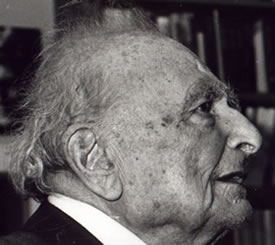
Albert Drach (17 december 1902 27 maart 1995)
De Amerikaanse schrijver John Kennedy Toole werd geboren op 17 december 1937 in New Orleans. Zie ook mijn blog van 17 december 2008.
Uit: A Confederacy of Dunces
Ignatius lumbered over to the picket fence, abandoning the hopeless cause espoused by the wagon, and viewed the oil paintings and pastels and watercolors strung there. Although the style of each varied in crudity, the subjects of the paintings were relatively similar: camellias floating in bowls of water, azaleas tortured into ambitious flower arrangements, magnolias that looked like white windmills. Ignatius scrutinized the offerings furiously for a while all by himself, for the ladies had stepped back from the fence and had formed what looked like a protective little grouping. The wagon, too, stood forlorn on the flagstones, several feet from the newest member of the art guild.
"Oh, my God!" Ignatius bellowed after he had promenaded up and down along the fence. "How dare you present such abortions to the public."
"Please move along, sir," a bold lady said.
"Magnolias don't look like that," Ignatius said, thrusting his cutlass at the offending pastel magnolia. "You ladies need a course in botany. And perhaps geometry, too."
"You don't have to look at our work," an offended voice said from the group, the voice of the lady who had drawn the magnolia in question.
"Yes, I do!" Ignatius screamed. "You ladies need a critic with some taste and decency. Good heavens! Which one of you did this camellia? Speak up. The water in this bowl looks like motor oil."
"Let us alone," a shrill voice said.
"You women had better stop giving teas and brunches and settle down to the business of learning how to draw," Ignatius thundered. "First, you must learn how to handle a brush. I would suggest that you all get together and paint someone's house for a start."
"Go away."
"Had you 'artists' had a part in the decoration of the Sistine Chapel, it would have ended up looking like a particularly vulgar train terminal," Ignatius snorted.
"We don't intend to be insulted by a coarse vendor," a spokeswoman for the band of large hats said haughtily.
"I see!" Ignatius screamed. "So it is you people who slander the reputation of the hot dog vendor."
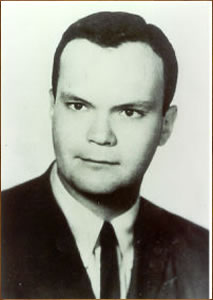
John Kennedy Toole (17 december 1937 26 maart 1969)
De Amerikaanse dichter en hervormer John Greenleaf Whittier werd geboren in Haverhill, Massachusetts op 17 december 1807. Zie ook mijn blog van 17 december 2008.
A Christmas Carmen
I.
Sound over all waters, reach out from all lands,
The chorus of voices, the clasping of hands;
Sing hymns that were sung by the stars of the morn,
Sing songs of the angels when Jesus was born!
With glad jubilations
Bring hope to the nations!
The dark night is ending and dawn has begun:
Rise, hope of the ages, arise like the sun,
All speech flow to music, all hearts beat as one!
II.
Sing the bridal of nations! with chorals of love
Sing out the war-vulture and sing in the dove,
Till the hearts of the peoples keep time in accord,
And the voice of the world is the voice of the Lord!
Clasp hands of the nations
In strong gratulations:
The dark night is ending and dawn has begun;
Rise, hope of the ages, arise like the sun,
All speech flow to music, all hearts beat as one!
III.
Blow, bugles of battle, the marches of peace;
East, west, north, and south let the long quarrel cease
Sing the song of great joy that the angels began,
Sing of glory to God and of good-will to man!
Hark! joining in chorus
The heavens bend oer us!
The dark night is ending and dawn has begun;
Rise, hope of the ages, arise like the sun,
All speech flow to music, all hearts beat as one!
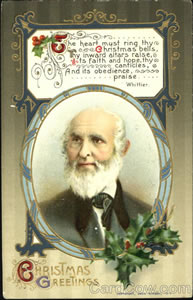
John Greenleaf Whittier (17 december 1807 7 september 1892)
Whittier op een kerstkaart
De Canadese schrijver Thomas Chandler Haliburton werd geboren op 17 december 1796 in Windsor, Nova Scotia. Zie ook mijn blog van 17 december 2008.
Uit: The Clockmaker or, The Sayings and Doings of Samuel Slick, of Slickville
The Preacher that Wandered from His Text
I guess, said the Clockmaker, we know more of Nova Scotia than the Blue Noses themselves do. The Yankees see further ahead than most folks; they can een a most see round t'other side of a thing; indeed some on them have hurt their eyes by it, and sometimes I think that's the reason such a sight of them wear spectacles. The first I ever heerd tell of Cumberland was from Mr. Everett of Congress;
he know'd as much about it as if he had lived here all his days, and may be a little grain more. He is a splendid man that--we class him No. 1, letter A. One night I chanced to go into General Peep's tavern at Boston, and who should I see there but the great Mr. Everett, a studying over a map of the Province of Nova-Scotia. Why it aint possible! said I--if that aint Professor Everett, as I am alive! why how do you do, Professor? Pretty well, I give you thanks, said he; how be you? but I aint no longer Professor; I gin that up, and also the trade of Preaching, and took to politics. You don't say so, said I; why what on airth is the cause o' that? Why, says he, look here, Mr. Slick. What IS the use of reading the Proverbs of Solomon to our free and enlightened citizens, that are every mite and mortal as wise as he was? That are man undertook to say there was nothing new under the sun. I guess he'd think he spoke a little too fast, if he was to see our steam boats, rail-roads, and India rubber shoes--three inventions worth more nor all he knew put in a heap together. Well, I don't know, said I, but somehow or another, I guess you'd have found preaching the best speculation in the long run; them are Unitarians pay better than Uncle Sam (we call, said the Clockmaker, the American public Uncle Sam, as you call the British John Bull.)
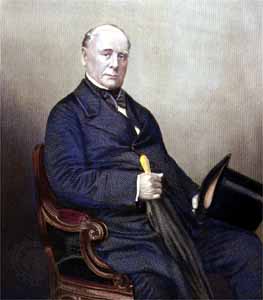
Thomas Haliburton (17 december 1796 27 augustus 1865)
De Poolse dichter en militair Władysław Broniewski werd geboren op 17 december 1897 in Plock. Zie ook mijn blog van 17 december 2008.
Bodies
Bodies of children
From crematories
Will fly
High above history
Bodies of boys,
Bodies of girls
In crowns of thorns
Will flock together.
Bodies of men
From field-graveyards
Will march to conquer,
Will be free.
Le premier papillon
Le premier papillon s'envola dans le pré,
lança vers le soleil un bonjour bien joyeux,
dans un nuage blanc s'égara un moment,
battit de l'aile frêle et descendit, prudent;
batifola un peu, insouciant et léger,
de tous ces va-et-vient se sentit fatigué,
s'assit sur une fleur, lui dit : que tu sens bon!
Tel fut le premier jour du premier papillon.
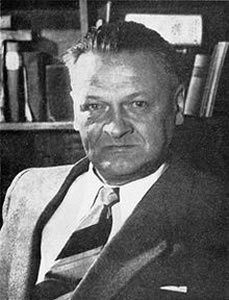
Władysław Broniewski (17 december 1897 10 februari 1962)
17-12-2010 om 19:21
geschreven door Romenu 
Tags:Albert Drach, John Kennedy Toole, John Whittier, Thomas Haliburton, Wł,adysł,aw Broniewski, Romenu
|

